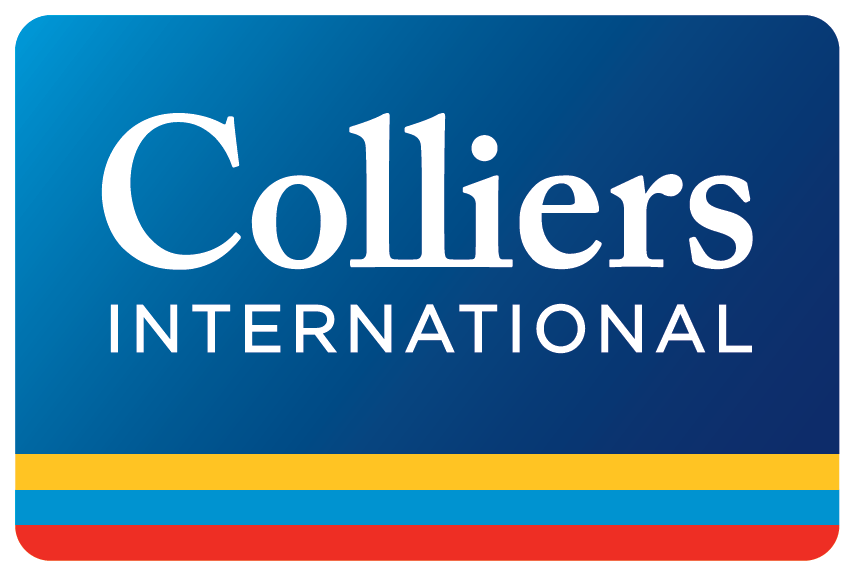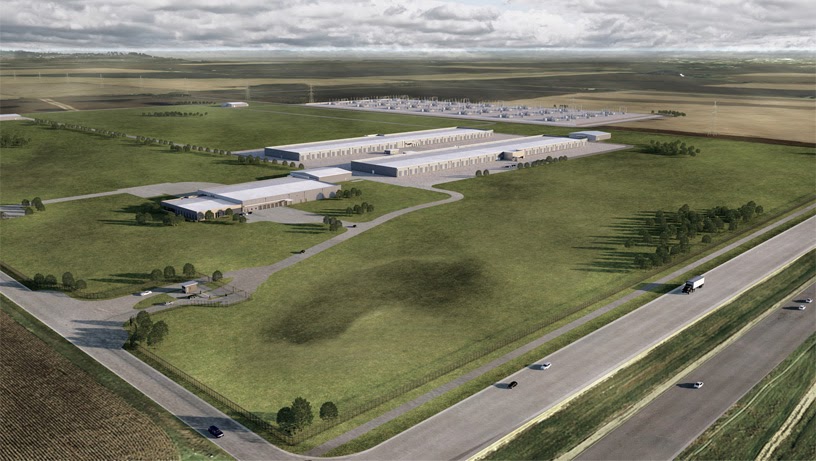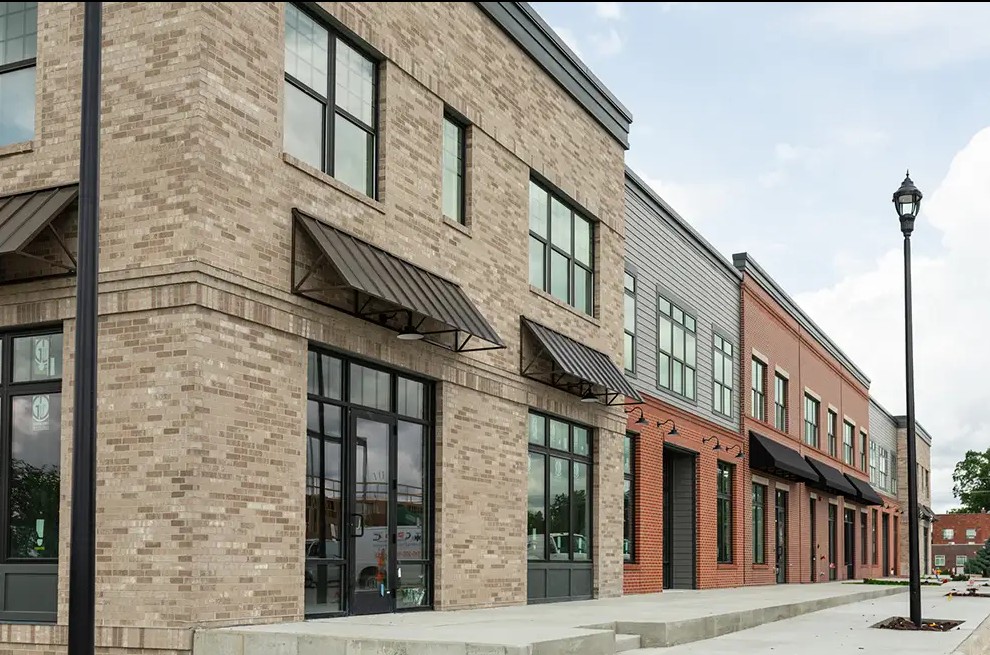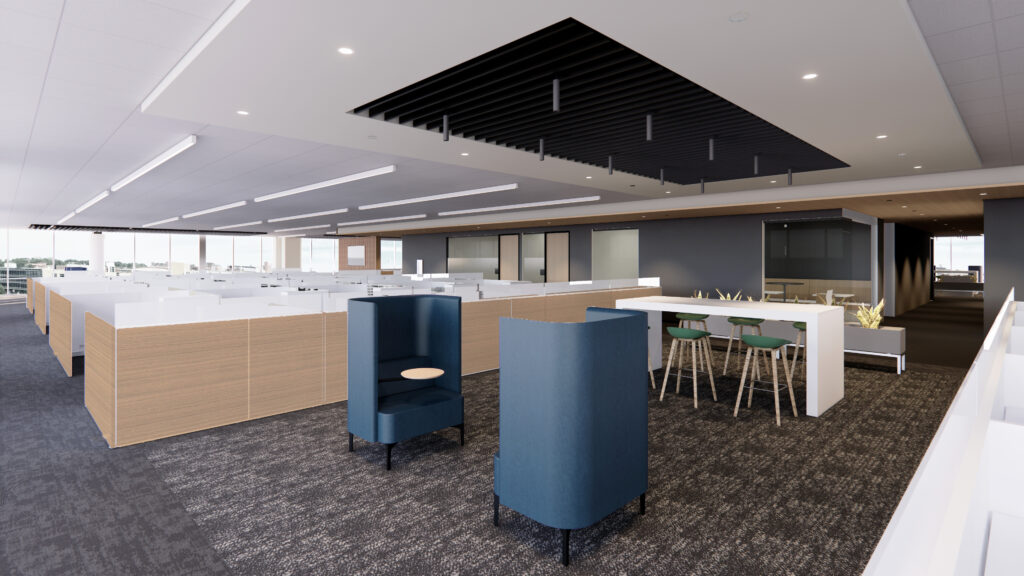The DeWaay ’empire’ slips away

Investment broker Donald DeWaay shifted money from one of his many financial services companies to others in order to pay the mortgage on a $20 million campus in Clive he hoped would become the “Mayo Clinic” of wealth management.
Instead, the debt service was “one of the main downfalls of the DeWaay empire,” according to a document filed earlier this month in Decatur County District Court, where the businessman is being sued by clients.
The document, an examination of DeWaay’s personal and business finances, was prepared by West Des Moines accountant Cyril Mandelbaum to provide some insight into DeWaay assets that could be liquidated as part of a proposed settlement of two class-action lawsuits.
The parties in those lawsuits, including DeWaay, have proposed a $3 million settlement of claims arising from investments in real estate and oil and gas leases that went awry. DeWaay would pay nearly $1 million into a settlement fund, with the balance picked up by insurance carriers.
According to the report, many of DeWaay’s businesses would have little worth at resale and much of the real estate he owns is encumbered by loans that exceed the value of the properties.
DeWaay, his DeWaay Financial Network LLC brokerageand other business entities were sued in January by investors who claimed they lost money on investments in real estate deals and petroleum leases that were promoted by DeWaay and his agents.
Since 2007, DeWaay has advocated a range of investment deals with companies that that have gone bankrupt.
One example is DBSI Inc., an Idaho-based company that offered tenant-in-common shares on properties across the country, including, at one time, the Partnership Building at Seventh and Locust streets in Des Moines.
DBSI declared that it was bankrupt in 2008, after selling an estimated $1 billion in investments. A court trustee is attempting to collect millions of dollars in those investments from DeWaay and other broker-dealers.
DeWaay Financial Network estimated in a court filing that it sold $46.3 million in private placements to 590 clients. DeWaay has fought the battle in federal court and before the Financial Industry Regulatory Authority Inc., always maintaining that brokers did not mislead clients.
“It just kills you when you read the kind of stuff that you read. We’ve been committed to helping people through the process,” DeWaay said in a Business Record story after the lawsuits were filed in Decatur County.
In 2009, DeWaay attempted to make good on shares his company sold on behalf of another real estate investment company that went bankrupt, Investment Properties of America LLC. However, those payments stopped in April.
Mandelbaum’s report said DFN Partners LLC, the holding company that owns DeWaay Financial Network and other companies, had net equity of $975,325 in May. Its main operating company, DeWaay Financial Network, had net equity of about $1.5 million as of Dec. 31, 2011.
DFN Partners showed a $239 profit in 2007; it’s the only year it operated in the black from 2007 to 2011. The holding company’s financial statements showed that sales ranged from nearly $8.5 million in 2007 to $16.7 million in 2010. It paid commissions of $6.8 million to its brokers in 2007 and $13.2 million in 2011. As a percent of sales, commissions varied from nearly 54.5 percent in 2009 to 84 percent in 2011.
At one time, the company boasted the three top selling brokers in the country. Those agents, who no longer represent the company, demanded commissions of 95 percent, according the report.
Another company, DeWaay Capital Management Inc., transferred funds to three limited liability companies to make mortgage payments on the three buildings that make up the DeWaay campus at 13001 University Ave. in Clive.
According to Mandelbaum’s report, cost overruns boosted development costs at the campus to $19.7 million, with much of that financing provided by Legacy Bank. In May, one of the buildings was deeded to Iowa State Trust and Savings Bank, which was a partner in the Legacy Bank loan. The property carries an appraised value of $9.5 million. Mortgage payments stopped at the end of 2011, according to the report.
DeWaay companies paid lease rates of $47.90 to $55.30 per square foot for their spaces at the campus. Formal leases were never signed. Other tenants, operating under signed leases, paid less than $23.30 per square foot, according to the Mandelbaum report.
The report examined DeWaay holdings that included businesses, wine collections and vacation properties.
Two companies focused on wine and spirits. They are DeWaay Resource Management Group LP and Fine Wine Direct LLC.
Mandelbaum reported, based on an interview with DeWaay, that DeWaay Resource Management Group had no spirits to sell and that she was “unclear about the nature of this business.”
Along with Greater Des Moines wine and spirits entrepreneur Ben Jung, Mandelbaum examined the $11,000 inventory of Fine Wine Direct and found good wine, wine past its prime and wine leaking from some bottles in a room that was not properly temperature controlled. Jung said he would pay $500 for the lot, according to the report.
An examination of a DeWaay-owned strip shopping center near Lake Okoboji found that it had net book value of $119,131, but little cash value.
A Lake Okoboji vacation home, appraised last year at $1 million, might net $375,000 if sold, and DeWaay-owned cabins at Lake Okoboji do not have enough equity to raise cash, according to the report.
Thirty acres of farmland was used to secure loans that exceed its value, according to the report.
Regarding DeWaay’s personal income, Mandelbaum reported a high of about $2.8 million in 2006 and a low of $464,674 in 2008. He owes $143,100 for 2010 taxes, and his 2011 tax statement has not been completed.
DeWaay’s investment accounts were valued at $1.8 million in April, down from $2.6 million on Dec. 31, 2011. Some of those investments were used to secure a $2.3 million pledge with Legacy Bank, according to the report.
DeWaay’s attorney holds $725,000 in a trust account. Mandelbaum reported that DeWaay had $22,384 in cash at two banks, a life insurance policy worth $61,000. Jewelry, fine art and boats were appraised at half of their value, for a total of $335,672.
The report and other documents reviewed by the Business Record in recent years show that DeWaay invested in many of the instruments that he promoted to clients. The report notes that DeWaay worked with another company to purchase liquidated assets, bundle and resale them, for example.
DeWaay has said in previous interviews with the Business Record that the collapse in real estate markets hurt his business, but that he found ample investment opportunities during the financial collapse, including high-risk, high-reward items, such as delinquent equipment leases.
Mandelbaum noted in her report that DeWaay and his employees were “very cooperative and forthcoming” in responding to her requests for documents.
Click here to read a related story in the Business Record.











